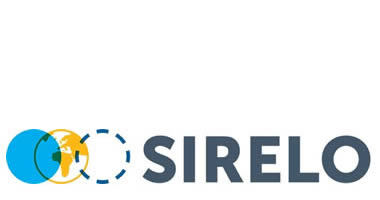Duty-Free, Customs and Foreign Cars in Turkey

Depending on your point of view, Turkey is either a shopaholics’s paradise with bargains galore for those willing to barter or a hellish haggle-zone awash with fake designer goods. Duty free shops are a rare example where the price on the tag is the price you pay.
Duty Free
Turkey uses the dual channel system for declaring goods (red for something to declare and green for nothing to declare). In most cases, there will be a duty-free shop in the baggage hall – giving you the chance to stock up on duty-free goods before going through customs. Don’t expect to pick up any bargains. Imported spirits are a bit cheaper but there’s little difference in the price of cigarettes when compared to local markets and branded cosmetics are expensive. Depending on where you are flying in from, it might be easier on the pocket to buy before you fly, not after.
As at August 2012, the following items may be brought in to Turkey as duty free goods:
Tobacco
| 1- Cigarettes | 600 pieces |
| 2- Cigarillos (pipes, each weighing not more than 3 grams) | 100 pieces |
| 3- Pipes | 50 pieces |
| 4- Cut-rags (with 200 leaves of cigarette paper) | 250 gr. |
| 5- Pipe tobacco | 250 g |
Alcohol
| 1- Alcohol and alcoholic beverages exceeding 22% alcohol by volume | 1 lt. |
| 2- Alcohol and alcoholic beverages not exceeding 22% alcohol by volume | 2 lt. |
Cosmetics
Eau de cologne, perfumes, lavender water, essence or lotion not exceeding 600 ml. and 5 pieces of skin care products and toiletries.
Food Products
| 1- Tea | 1 kg |
| 2- Soluble instant coffee | 1 kg |
| 3- Coffee | 1 kg |
| 4- Chocolate | 1 kg |
| 5- Sugary products | 1 kg |
Staff in the duty free shops will sell you as much as you want to buy and may stretch the truth about the allowances to get a sale (both arriving in Turkey and when leaving). Remember, it is your responsibility to make sure you do not exceed the quota, not theirs. In my experience, visitors are little troubled by Turkish customs officers when passing through nothing to declare.
Currency
There are no restrictions on taking Turkish or foreign currency in to Turkey. The limit for taking currency out of the country without declaration is 5,000 USD (or equivalent).
Precious metals and gems
Passengers may bring in and take out personal jewelry (‘having a non-commercial nature’) to the value of 15,000 USD.
The following items are strictly prohibited:
- Narcotics/illegal drugs of any kind
- Pornography and subversive material
- Firearms, explosives, ammunitions and all other weapons unless otherwise approved
The Turkish Ministry of Customs maintains a useful up to date list of what you can and can’t take in to Turkey. It’s always worth checking before you travel.
Medications
You are allowed to bring a ‘reasonable’ amount of medication as long as you have a prescription, letter from your doctor or any other official document from a healthcare organisation.
Importing Personal Goods
If you intend to settle in Turkey for a while it’s perfectly possible to import the family silver if you have the correct paperwork (including proof of residence) and are prepared to pay import tax on certain items. The general rule is that used household goods and personal effects can be imported tax and duty free - as long as you have owned them for at least six months. New items (less than six months old) may be subject to an import tax.
Whether your goods arrive by car, sea or air, you will need to get your head round the closely regulated Turkish system. Most reputable removal companies will have bilingual agents/partners within Turkey to help. Having someone who understands the process will save you a great deal of time, not to mention money. If you decide to go it alone, make sure you do your homework, check the latest regulations with your nearest consulate/embassy, get your paperwork in order and ensure you have a translator unless your Turkish is of a high standard.
To import goods into Turkey, you will need to be present when the goods go through customs and as a minimum, you will need your:
- Passport (with your last entry into Turkey stamp)
- Tax number
- Residence/work visa or other proof of your right to stay in Turkey
- Rental contract or Tapu (property ownership document)
- Bill of landing (travel ticket) showing your name and arrival date
- Detailed and costed inventory, dated and signed by you.
- Power of Attorney (produced and notarised in Turkey) giving authority for an agent to clear customs (if applicable)
Importing Vehicles
Importing a car or other vehicle into Turkey is far from straightforward. It’s complicated and expensive and comes with a whole raft of restrictions. The process is highly regulated by the Touring and Automobile Club of Turkey (TTOK). To start with you must prove that you have the right to stay in the country then you must obtain an ‘Alien Vehicles Temporary Entrance Carnet’. To get this you will need to supply a stack of documents (including proof of ownership and proof that the vehicle is safe). As usual, everything must be translated into Turkish and officially notarised. In most cases, an imported car cannot be sold, lent or rented to anyone else in Turkey. Also, you will need to get a new license plate and will only be allowed to have the car in the country for six months out of every 12. Fees will quickly escalate. They include the cost of transporting the car, carnet fees, a security deposit, customs fees, insurance, tax and notary fees. Most people don’t bother.
These are general guidelines only, for full details of the process and requirements, check the official TTOK website.
By Jack Scott, author of Perking the Pansies. Jack and Liam move to Turkey, a bitter-sweet tragi-comedy recalling the first year of a gay couple in a Muslim land.
- My Life Abroad -
A selection of expat stories

"A fun compulsive read!"
J. Matcham, Amazon
"I strongly advise people ready to live abroad to read this book!"
Patrice, Amazon

 Entry Requirements and Visas in Turkey
Entry Requirements and Visas in Turkey What is a Schengen Visa?
What is a Schengen Visa?
 AGS Worldwide Movers
AGS Worldwide Movers Fexco payment solutions
Fexco payment solutions 1stMove Car Shipping
1stMove Car Shipping Highlights of Istanbul
Highlights of Istanbul